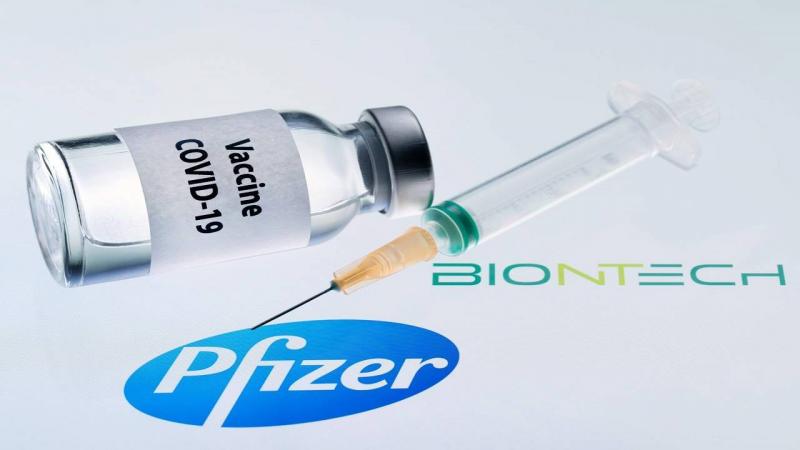Pfizer, the manufacturer of the COVID-19 vaccine, has been accused of hiding behind a veil of secrecy to profit during the worst public health crisis in over a century. This was the main criticism directed by the consumer rights group Public Citizen, which published a report containing leaked contracts between Pfizer and various entities including the United States, the United Kingdom, the European Commission, Albania, Brazil, Colombia, Chile, the Dominican Republic, and Peru.
In some contracts (draft or final), Pfizer had the ability to prevent countries from donating COVID-19 vaccines to other nations, unilaterally change delivery schedules in the event of shortages, and claim public assets as collateral. If there were a dispute between Pfizer and a country, some contracts stipulated that it would not be settled in court. Instead, they indicated that any disagreements would be resolved through arbitration under New York law.
The report's author, Zain Rizvi, stated, "The contracts offer a rare glimpse into the power that a single pharmaceutical company has gained to silence governments, choke supply, shift risk, and maximize profits during the worst public health crisis in a century." He added, "Pfizer's demands have sparked outrage worldwide, slowing down purchase agreements and even delaying the vaccine delivery schedule."
Some countries signed contracts waiving "immunity from Pfizer's attachment of any of its assets," including Brazil, Chile, Colombia, and the Dominican Republic. The Brazilian government was prohibited from issuing "any public statement regarding the existence of the agreement, its subject matter, or its terms" or commenting on its relationship with Pfizer without prior written approval from the company.
### Supply Deal Values with Pfizer
Pfizer maintained strict control over its vaccine supplies, even after delivery. For instance, Brazil was not permitted to purchase or accept donations of Pfizer doses from any other country without the company's approval, nor could it sell, donate, or transfer its doses outside the country.
There is a plausible explanation for this condition being included in Pfizer's contracts, according to Trent Munro, a biotechnology and pharmaceuticals expert at the University of Queensland, who said to Australian network ABC: "When pharmaceutical companies launch a product, they generally lose control over where it is stored... But they also need to ensure that nothing happens that could affect the product's efficacy. For instance, if the vaccine is damaged or does not work correctly, the liability would revert to the company. It is normal for them to be blamed even if they are not in control of distribution."
Even when a country requests Pfizer vaccines and is awaiting their arrival, the company has the ability to alter the vaccine delivery schedule without consulting the country or facing penalties. This condition appears in its contracts with Albania, Brazil, and Colombia.
### Loss of Sovereign Immunity on Assets
The contracts signed by Brazil, Chile, Colombia, and the Dominican Republic were lengthy enough to cover situations in which they would not be able to rely on sovereign immunity if they violated the agreement, and Pfizer sought to pursue their governmental assets. Those countries promised “an explicit and irrevocable waiver of any right to immunity they may have or acquire in the future.”
Public Citizen also noted that it examined contracts requiring governments to "indemnify Pfizer and defend and protect it from any or all claims, demands, actions, damages, costs, and expenses related to the intellectual property of the vaccines."
### Pfizer Responds
ABC asked Pfizer why it imposed terms preventing countries like Brazil from accepting or purchasing vaccines from other nations and why the contracts contained clauses allowing the company to seize state assets. A company spokesperson stated that Pfizer "is committed to the principle of fairness and making the vaccine widely available to combat this devastating pandemic."
The statement added that "Pfizer has a deep sense of responsibility to help ensure that our vaccine is available to everyone." It continued: "As the pandemic evolved, Pfizer has continued to partner with governments to ensure the equitable distribution of doses, responding to requests for fair distribution of these doses. This has been done through donations and dose-sharing agreements in multiple countries."
The spokesperson further stated: "In the context of bilateral negotiations, Pfizer has no intention of interfering with the diplomatic, military, or cultural assets of any country, and any suggestion to the contrary is incorrect."
The company indicated that indemnification terms were common when supplying vaccines during public health emergencies. Additionally, the statement noted: "We seek the same type of indemnification and liability assurances in all countries that requested to purchase our vaccine, in accordance with relevant local laws to create appropriate risk protection for all parties involved. In markets lacking the legal or legislative protections available in the U.S., we work with governments to find mutually agreeable solutions, including contractual indemnification clauses."
As of October 17, the company had delivered over 1.8 billion vaccine doses to 146 countries and regions worldwide, pledging to supply two billion doses to low- and middle-income countries between 2021 and 2022.




